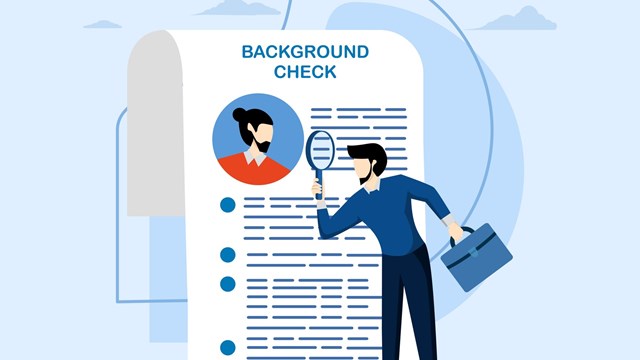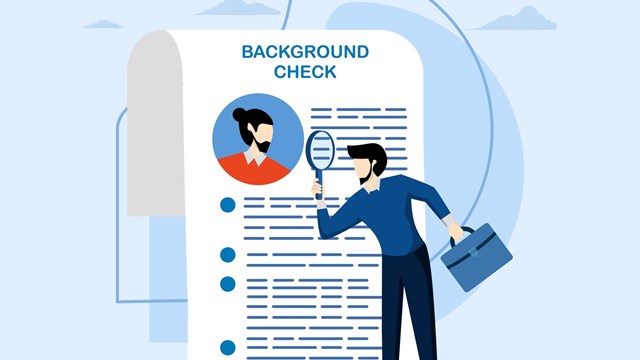As reported by Builders Online, the U.S. Department of Housing and Urban Development (HUD) published guidance recently regarding criminal background checks for housing providers, focusing on 'disparate impact' discrimination. According to a post by the California-based real estate law firm of Kimball, Tirey & St. John, LLP, "Disparate impact occurs when a landlord has a policy or practice that is neutral (i.e., non-discriminatory) on its face and applies equally to all applicants and/or residents, but its application has a discriminatory effect on one or more of the protected classes. In order to successfully defend a claim of discrimination, the landlord must be able to show that this policy or practice is necessary in order to achieve a non-discriminatory business objective, and that there is no less discriminatory alternative that would achieve that business objective."
It's worth highlighting that a “guidance” from a federal agency is not law, and HUD’s language appears focused on landlords and rentals. But, if the guidance is a warning of how the feds may want to handle housing discrimination in the future, co-op and condo boards might want to pay attention.
Accept or Reject
"In a rental situation, you fill out an application, check some boxes, they run a check, then they rent to you or they do not," says Ira Brad Matetsky, Esq., a partner with the Manhattan-based law firm of Ganfer & Shore, LLP. "A co-op board, assuming that the applicant meets the basic screening, is going to want to interview a candidate, and then is going to make an 'accept' or 'reject' decision, typically without offering reason for the latter. In fact, lawyers routinely counsel boards not to provide that information. Boards have broad discretion to accept or reject for what the court refers to as good reasons, bad reasons, or no reason at all."
Now, while that may make it sound as if co-ops have carte blanche to reject anyone on a whim, there are protected categories, including race, religion, family status, sexual orientation and disability, by which a board cannot make a dismissal. According to T. Austin Brown, founder and principal attorney at The Austin Brown Law Firm in New York City, a decision made based on a discriminatory reason:
is unlikely to be unanimous, and will leave someone on the board unhappy with the decision to deny someone for that reason, which may prove to be ground zero for opening an association to legal risk.
may hurt the value of the property—it makes the board's decisions seem arbitrary, and may cause brokers and potential buyers to look elsewhere when a unit is on the market.
is a moral wrong, and there's a reason such discrimination is prohibited.
So how does this play into the new HUD guidance? Well, it could potentially introduce certain arrest histories into those protected categories, although it's still early to tell.
Shades of Grey
"HUD is explaining in the guidance that facially neutral policies—something akin to 'We won't rent to anyone with a felony conviction,' that can be neutral in theory—as a practical matter can, in fact, be discriminatory, as due to the realities of the world in which we live, more Hispanics and blacks have a criminal conviction by percentage than anglo whites," explains Matetsky. "So sooner or later a member of a minority who happens to have a criminal conviction will bring forth a case wherein they allege they've been rejected for something that's neither housing related, nor will it increase risk to people in the building. And the question that will arise is whether or not a white person has standing to bring that claim, or only a minority. The court will probably rule that anyone has that standing, but, as of now, we don't know."
There is current precedent for disparate impact on background checks as it applies to hiring practices. "The Equal Employment Opportunity Commission has ruled that indiscriminate use of background checks to screen job applicants violates Title VII," says Brown. "And consider how the background check is used when hiring a new superintendent or doorman. The guidelines are more or less the same—nobody is going to make you hire or sell property to someone who has committed a crime, but if a rejection is based solely on a record in the background check without specific consideration of the circumstances, it may be ruled discriminatory."
"Co-ops, historically, have been communities wherein the board can decide who they allow to live therein, and it can be fairly baseless," says Justin S. Buchel, a partner with the Garden City law firm of Schneider Mitola, LLP. "But lately we're seeing more of a trend toward taking discriminatory measures into consideration. In Suffolk County, for example, boards must actually give reason for their rejections."
Thus if condos are using background checks to make their decisions, they may have to assess what they do with any information gathered therefrom, lest they cross that discrimination line. "Maybe it will mean that co-ops opt not to even do a background check, because there's a chance that, were they to reject based on a past criminal background, they could get sued," explains Buchel. "Maybe they'll opt to trust their guts. But I'm not sure."
Matetsky still thinks that background checks are here to stay. "No board is going to say, 'you know what? We're not going to do background checks.' People definitely still want to know about, say, that year-old rape conviction.” However, he recommends that co-op boards take note of the guidelines, as they will most likely prove quite relevant in the near future. "Whether by HUD itself or a private individual, there are certainly going to be attempts made to apply this guidance to rejections by boards."
Mike Odenthal is a staff writer for The Cooperator.










Comments
Leave a Comment